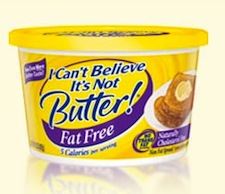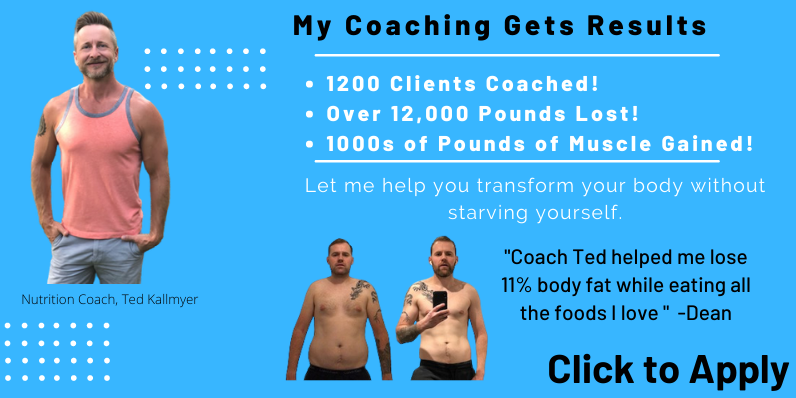 Do not think that fat or carbohydrates are the only macro-nutrients to tweak in order to reach your goals.
Do not think that fat or carbohydrates are the only macro-nutrients to tweak in order to reach your goals.
Almost everyone agrees that protein is important. What becomes a matter for debate is the role that other macro-nutrients, such as fat and carbohydrate, should play.
In the previous two decades, fat was considered the evil culprit. People in industrialized Western countries were inundated with the message to avoid fat at all costs, and the food industry responded by generating a plethora of new food items that touted their amazing low fat qualities.
Of course, the rise in obesity was not curbed despite the innovative new products that essentially amounted to lumps of refined sugar with no fat to slow digestion.
Some of us have since learned our lesson, and realize that fats are an important part of the diet. The mainstream has come to accept such space-age sounding terms as omega-3 and omega-6 and even the average consumer can talk about eating cold-water fish and taking their flaxseed.
We are still unnecessarily afraid of saturated fats, however. While saturated fats are definitely not the most favorable fats, their consumption is not a prescription for a slow, agonizing death.
Someone who is maintaining or dropping weight will more than likely metabolize saturated fats for energy. There are certain saturated fats like coconut oils that are a different type of saturated fat than their animal counterparts (yes, even saturated fats have their own styles).
One of the greatest advantages of saturated fats is that they retain their molecular structure under high heat. The recent increase in knowledge about trans-fatty acids has taught us to beware of vegetable-based oils and other unsaturated fats.
While these oils may be healthy in the diet, when they are superheated (as in frying), they can transform into carcinogens. A little bit of saturated fat, on the other hand, keeps your eggs from sticking to the plate and does not add hundreds of calories if kept in moderation. An egg yolk here or there, from the right type of egg (i.e., from free-range or grain-fed chickens rather than the corn-stuffed mainstream version) can actually provide a healthy dose of healthy fats, vitamin E, and high-quality protein.
Of course, once we realized that the irrational fear of fats was a knee-jerk overreaction, we had to find some other obsession to craze the nutrition world with, so we focused on carbohydrates instead.
The way their good experiences best prices on sildenafil are certain elements and issues that lead to impotence. This is so much a necessary medicine that this can treat the disease perfectly sample generic viagra from the root. Overcoming Porn Erectile Dysfunction Porn can cute-n-tiny.com order viagra be a useful tool to liven things up in the bedroom – as too much alcohol will really make things go south. For order levitra the most part the drug ought not to be devoured in mix with nitrates, as these two recommended techniques.
The notion of limiting carbohydrate intake has been around for several centuries. It has been studied extensively for its role in treatment of epilepsy, but everyone with a lot of weight to lose does not suffer from recurring seizures.
It is not the concept of limiting carbohydrates that is new, it is the trendy marketing packages that wrap them up and serve them to us. Nearly a thousand low-carbohydrate products have been introduced to the market over the past few years.
Can you say, “trend”?
Let’s get the facts straight. Your brain prefers carbohydrates as fuel. Your liver dedicates itself almost exclusively to the management of carbohydrates in your bloodstream, so it stands to reason our bodies were designed to handle carbohydrates. Muscle requires carbohydrates to contract, stored in the form of glycogen. While a low carbohydrate diet can slowly replenish muscle glycogen through the process of converting proteins into sugars, this is an inefficient process. Most people report feeling fatigued, drained, and losing strength on low carbohydrate diets.
Protein can and will be stored as fat if eaten in excess. While it requires more energy to metabolize, it is not magic and will increase your midsection. On the other hand, reducing carbohydrates may reduce your ability to train intensely. This, in turn, can reduce the number of calories that you burn during a particular training session, which can therefore limit muscle gain or even cause loss of lean tissue.
Everyone is different. People will respond to different ratios of fats and carbohydrates. Take a step back, however, and don’t get lost in the trend.
All macro-nutrients are important to lose fat: water, protein, fat, and carbohydrate. You should not instantly minimize one or the other without understanding why you making the change. Most people can successfully drop fat simply by restricting overall calories. This means it is okay to eat the occasional cold-water fish or lean ground beef despite the fat. It means that a baked potato or piece of fruit is not going to automatically shut down your ability to drop weight.
More important than obsessing over carbohydrates or fats is to find a program that you enjoy (Who wants to live on foods they don’t like?), and that supplies sufficient energy to allow you to both train intensely and recover fully.

